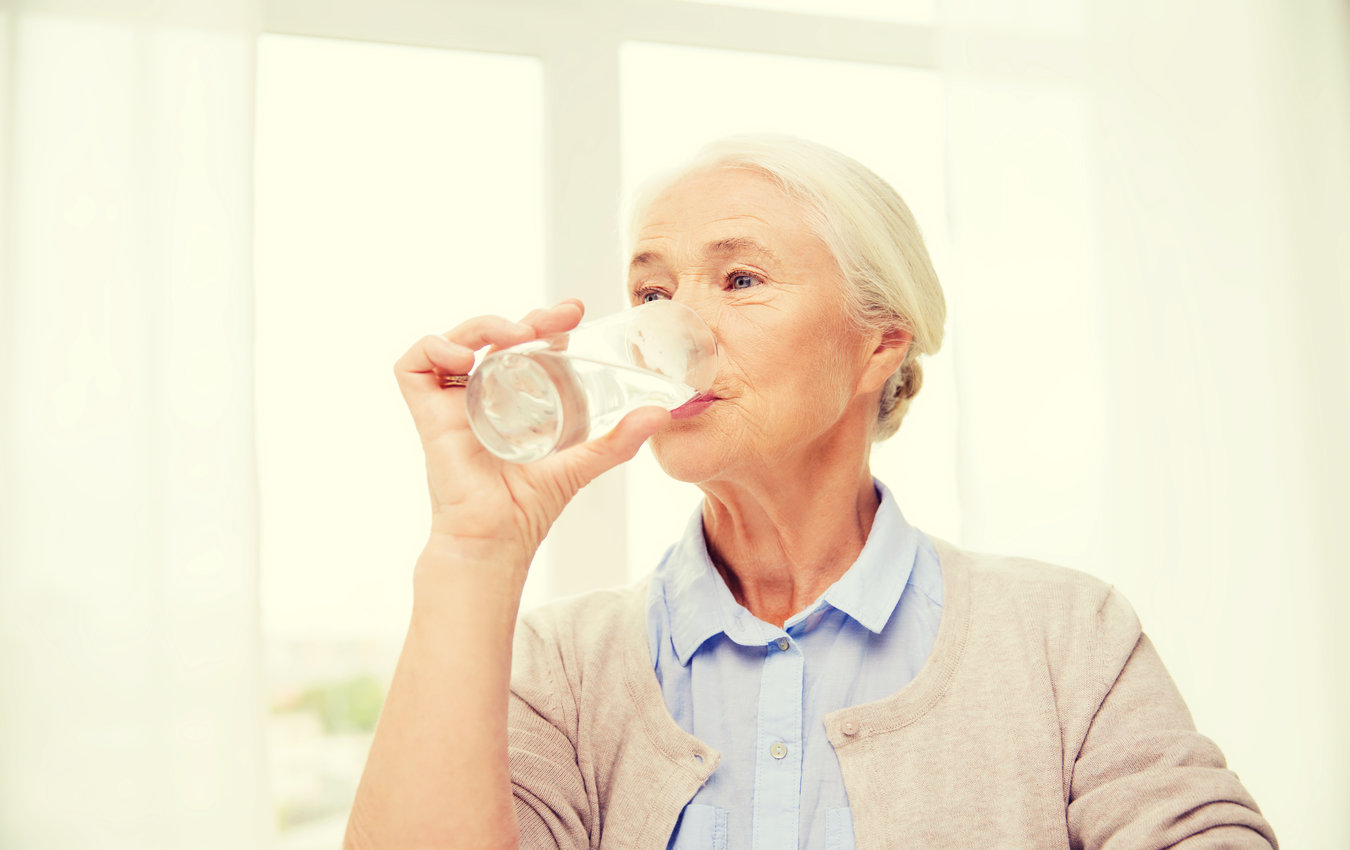The Risk of Dehydration Increases As We Age

We all know that summer heat increases our risk of becoming dehydrated but dehydration is a common problem for senior even when it’s not hot outside.
Water makes up about 55-60% of total body weight in younger adults. As we age, it decreases to 50-55% and body fat increases. This lower level of body fluid, a reduced ability to conserve water and a diminished thirst sensation make seniors more susceptible to dehydration – which occurs when you lose more fluid than you take in. Replacing lost fluids is essential to your body’s ability to function.
Dehydration risk factors for seniors
Anyone can become dehydrated, but here are some possible causes to keep in mind if you or someone you care for is an older adult:
- Diabetes – high blood sugar levels cause increased urination and fluid loss
- Chronic illnesses such as kidney disease – healthy kidneys concentrate urine so less water is lost when the body is dehydrated
- Dementia – people with dementia may forget to drink, not recognize that they are thirsty, or have trouble swallowing
- Medications that increase urination such as blood pressure drugs
- Minor illnesses such as a cold or sore throat because you tend to eat or drink less when you don’t feel well
- Diarrhea and vomiting
- Fever
- Mobility problems that make it difficult to get a drink on your own
- Excessive sweating
How to prevent dehydration
The best way to prevent dehydration is to drink plenty of fluids and eat fruits and vegetables that are high in water content such as apples, oranges, grapes, watermelon and cucumber.
It is recommended that older adults consume at least 1.7 litres of fluid a day (over a 24-hour period).
Other things to consider:
- Drink more in hot weather and when you exert yourself
- Be sure to drink plenty of water if you have a fever, vomiting or diarrhea
- Eating fruit and soup are good ways to increase fluid intake
- Drink even if you’re not thirsty
Tips for caregivers
If you’re caring for an elderly loved one, here are some ways to help prevent them from becoming dehydrated:
- Offer healthy drinks and water frequently on a schedule throughout the day
- Provide beverages they prefer; tea is fine but herbal tea is a better choice
- Do not expect them to drink a large quantity at one time; encourage them to drink small quantities more often
- Try using a straw if that makes it easier
- Keep a water bottle next to their bed or chair
- Address any continence issues that might make the person reluctant to drink often
- Help them get to the bathroom on a regular schedule
- Keep track of their fluid intake
- Ensure they get extra fluids when it’s hot or they’re ill
Recognizing the signs of dehydration
It’s important to be aware of the signs of dehydration so you can take steps to treat it quickly.
Mild to moderate dehydration:
- Thirst
- Dry or sticky mouth
- Less frequent urination
- Darker yellow urine
- Dry, cool skin
- Headache
- Muscle cramps
Severe dehydration:
- Not urinating, or very dark yellow or amber-coloured urine
- Dry, shrivelled skin
- Irritability or confusion
- Dizziness or light-headedness
- Rapid heartbeat
- Rapid breathing
- Sunken eyes
- Listlessness
- Shock
- Unconsciousness or delirium
How to treat dehydration
If you notice mild to moderate signs of dehydration, here are some ways to help you recover:
- Sip water or suck on ice cubes
- Try a sports drink that contains electrolytes
- Do not take salt tablets
- Speak to your healthcare provider about what to eat if you have diarrhea
For more severe dehydration, call your healthcare provider or go to an emergency room.
For seniors who need assistance with activities of daily living, including help to stay healthy and hydrated, Bayshore caregivers can help. Find a Bayshore Home Health location near you and requests a free in home consultation.
Sources
Mayo Clinic
Medline Plus
Better Health While Aging
The Journal of Nutrition, Health and Aging
